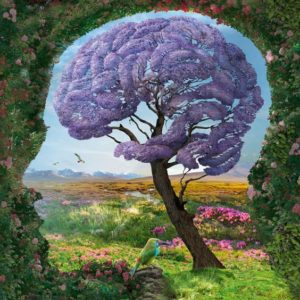What does it mean to be a ‘Master of your mind’? In the article below I outline seven mindful skills that I have found to be particularly useful with regard to my mind, thoughts and thinking. They have continued to be effective for me and deliver value over long periods of time.
In the spirit of finding joy in your mind,
Toby
Mastering your mind through mindfulness – Seven skills
What does it mean to be a ‘Master of your mind’? In this article my idea is to outline seven mindful skills that I have found to be particularly useful with regard to my mind, thoughts and thinking. They are designed to help you
- Find enjoyment and pleasure in the use of your mind, rather than feeling overwhelmed by it
- Develop confidence in the effectiveness of your own mind and thinking process, so that you can use it to navigate your life challenges more successfully
Here they are:
Not losing your senses – Whether your mind is busy or calm, happy or sad, its useful to have your body and your senses as a stable reference point for your mind. Learn to orientate your mental awareness around the stable anchor of your physical experience of this moment, right now.
Committing to be aware of what’s going on in your mind – You can’t master what you don’t know. Get used to watching the comings and goings of your mind like a curious scientist. Learn to watch without editing what arises. What does a thought look like? How do thoughts and emotions relate to each other? Get to know experientially by observing regularly.
Being aware of the value of attention and the way you are framing what you experience – You can’t control everything you experience, but you can control the way you frame what you experience! If you are on a bad holiday where everything is going wrong, thinking ‘This is going to give me the material for some really funny stories when I get back!’ will give you a very different experience than if you just wallow in the thought ‘This is a crap holiday’! Pay close attention to the way in which you are paying attention.
Centralizing what’s good in the field of your awareness – There are always good things in your life. Make sure you know what they are, and make them front and center, not peripheral in your awareness.
Taking care of wounded, upset, dysfunctional and disowned thoughts – Often the parts of ourself and our mind that need the most attention are the ones that we reject, disown, repress or try and pretend aren’t there. Reverse this attitude. Learn to look after the thoughts in your mind that need your care and attention to heal and return to health!
Balancing mental activity with mental non-activity – Spend time getting familiar with what it feels like not to think. Get comfortable with empty spaces in your mind. Relax into them and enjoy the regenerative calm that comes from developing this skill, and resting in non-activity.
Bringing mental clarity through asking questions – Often our mind is an unexamined miasma of half processed thoughts, memories and feelings. Learn to consciously formulate questions that will help you bring clarity to the mess. Ones like ‘What’s good in my life?’ ‘What do I need to accomplish today?’ ‘What is my intention for doing this piece of work?’ or ‘What can I do to solve this problem’ are simple examples. Questions like this give your mind a target to focus on and ‘hit’. You can’t hit a target that you haven’t set up!
So, seven basic practices, if you like you could focus on one a day over the next three weeks, which would give you times to cycle though each one three times. See how it improves the way you experience and work with your mind, and how much you enjoy it 😉
© Toby Ouvry 2018, you are welcome to use or share this article, but please cite Toby as the source and include reference to his website www.tobyouvry.com
Integral Meditation Asia
Online Courses * 1:1 Coaching * Books * Live Workshops * Corporate Mindfulness Training *Life-Coaching * Meditation Technology




 The Power of Presence – Dealing mindfully with anger and conflict in your relationships
The Power of Presence – Dealing mindfully with anger and conflict in your relationships




 Lunar new year meditation 2018: Drawing Strength from your Deeper Values in the year of the Earth Dog
Lunar new year meditation 2018: Drawing Strength from your Deeper Values in the year of the Earth Dog